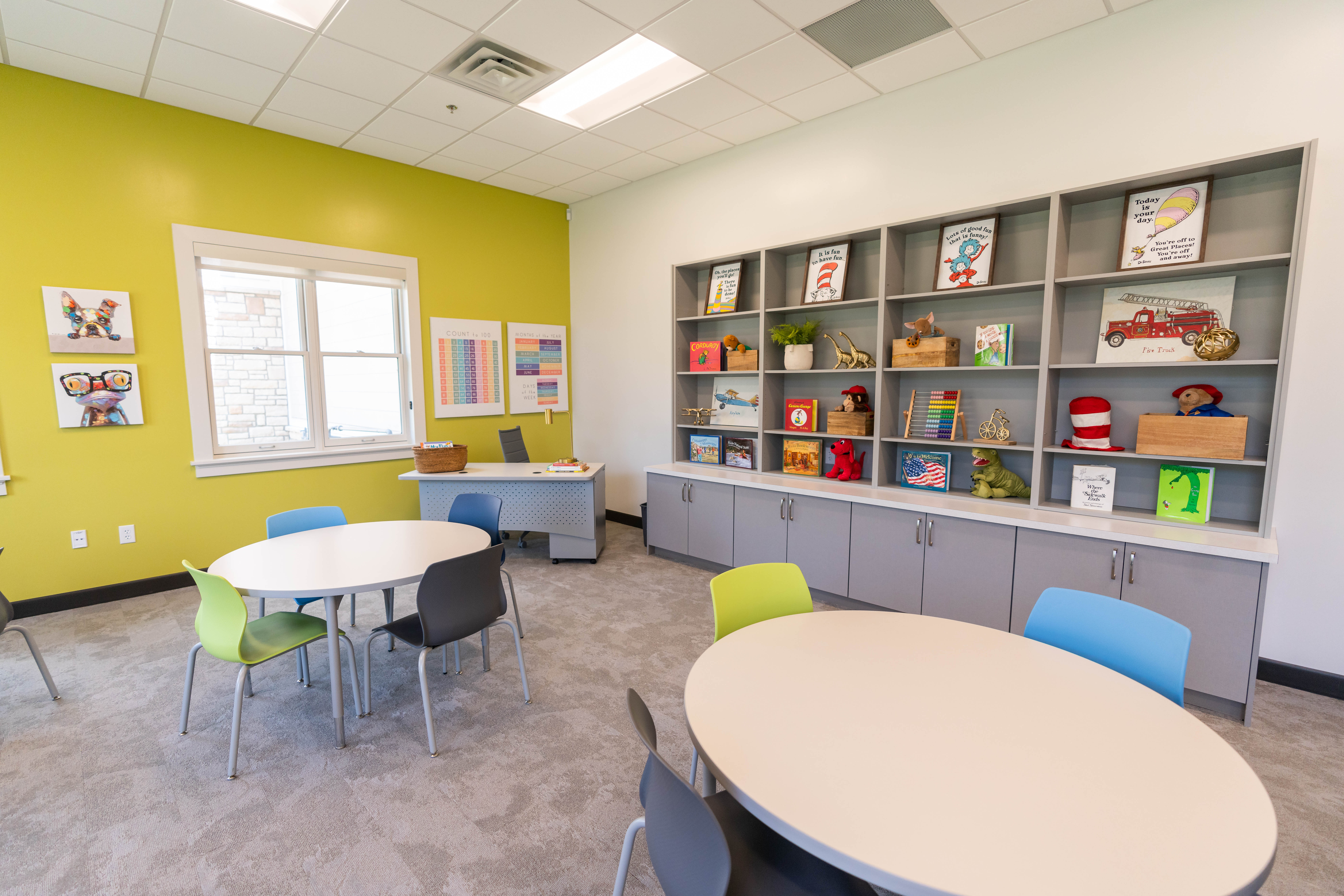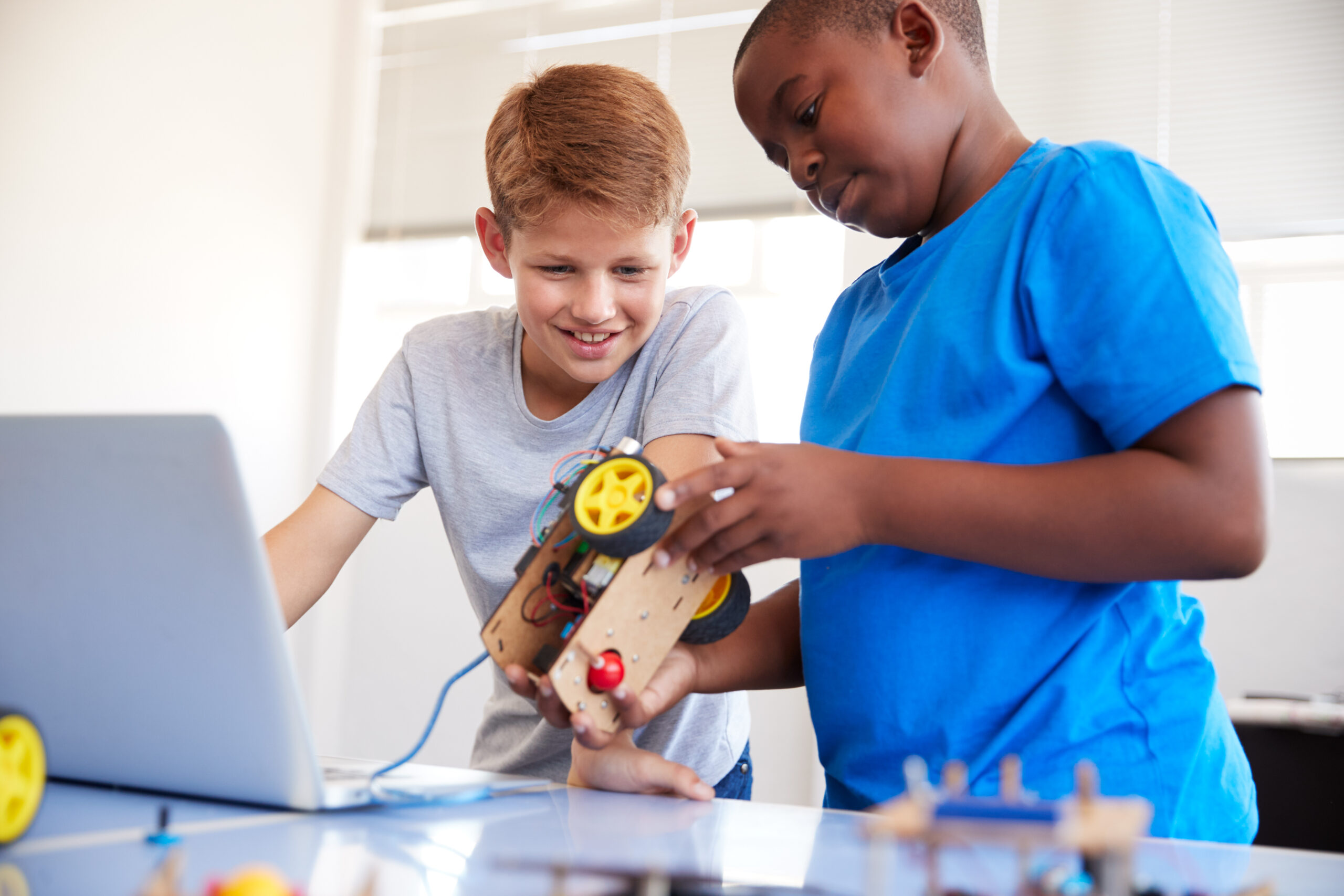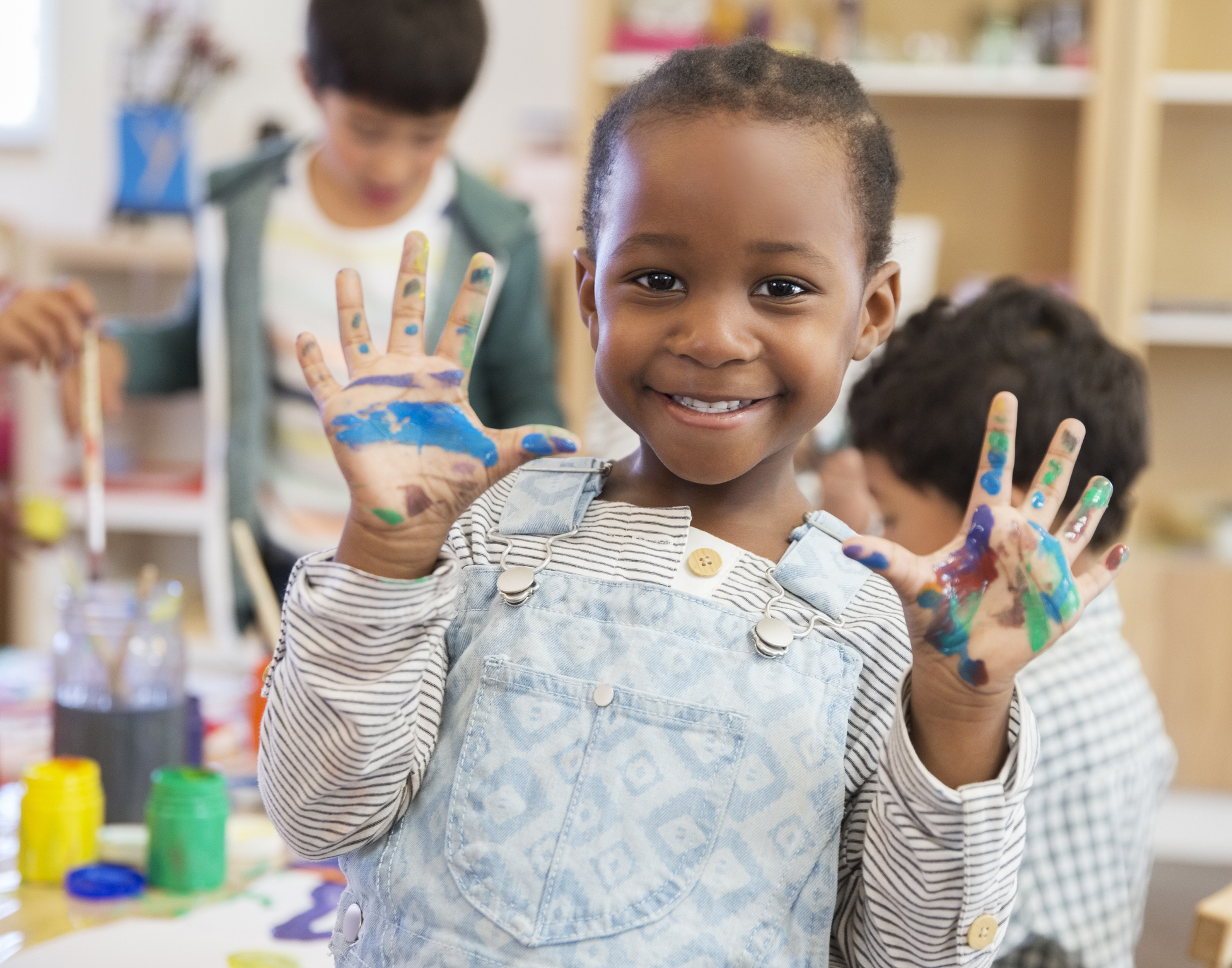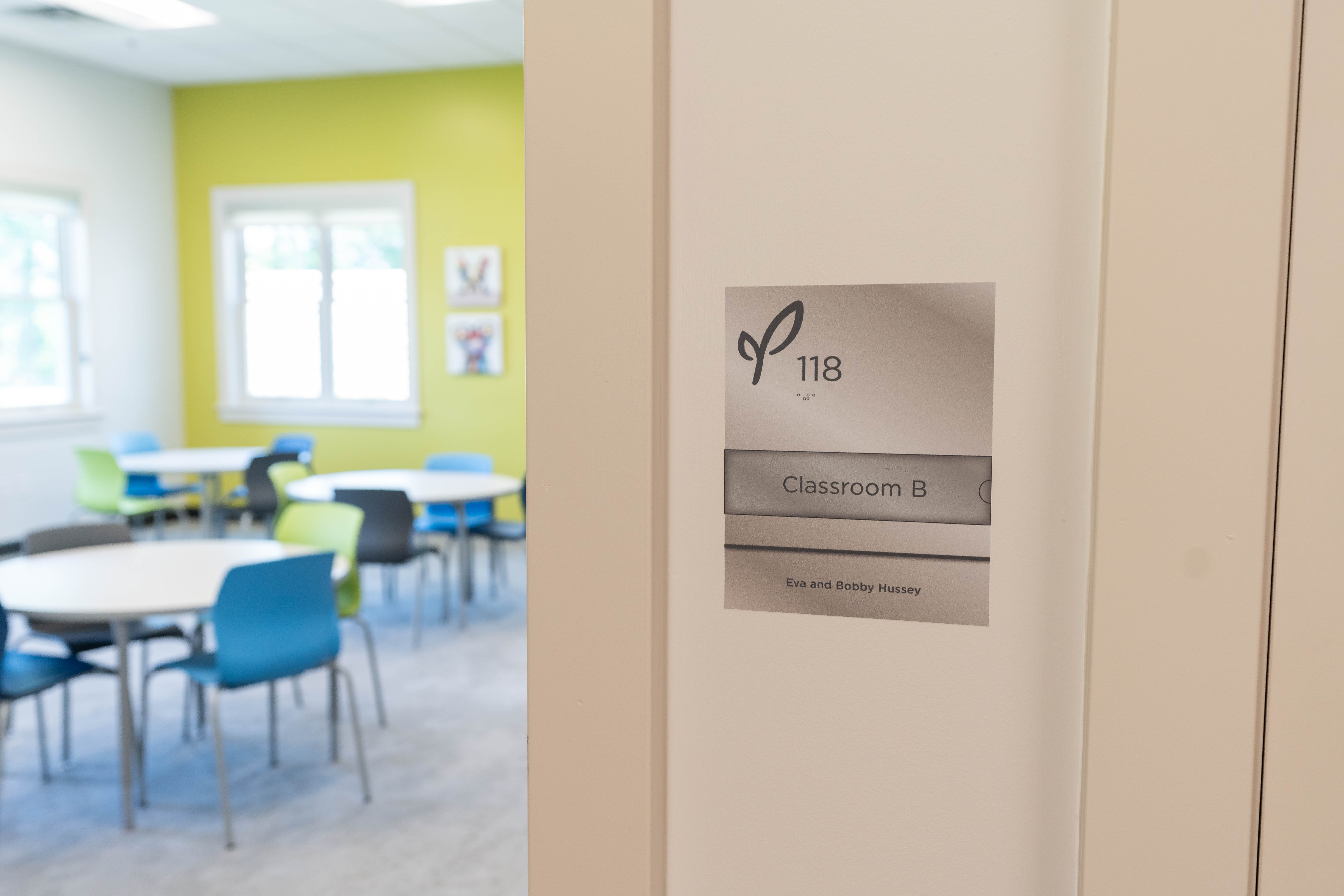Empowering Students with Unique Challenges: The Role of Palmer School in Academic Success

Palmer Home for Children seeks to provide restorative environments for children and young adults who may face challenging circumstances. Children with ACEs (adverse childhood experiences) are significantly more likely to struggle academically due to having unmet needs that shift their focus.
At Palmer School, our goal is to create and cultivate a safe and supportive learning environment for children, especially those who:
- may have struggled at school
- have faced a challenging academic path
- may need additional one-on-one support not available in a traditional classroom setting
- need tailored educational plans designed to help them thrive
“I believe that every child is entitled to a high-quality education in which their individual academic needs are being met, while developing a love of learning and continual growth. I also believe that each child has a unique talent or gift that should be identified early on so that a specific learning path or opportunities can be designed and implemented.” – Dr. Andre Crafford, Director of Education and Training
At Palmer Home, we seek to cultivate these gifts, whether it’s an academic subject a student excels in, an artistic ability they hope to hone, or an athletic endeavor they hope to pursue, so that we can help develop their self-esteem and intellect with the whole child in mind. Identifying and cultivating a child’s strengths ensures a path to hope and healing for a child not only in our care, but in any other type of environment.

Palmer School’s Philosophy: Transformative Education for Children Who’ve Experienced Adversity
A child with unique developmental circumstances often has difficulty getting the services or support needed to thrive and grow in larger classroom settings.
At Palmer School, students who have experienced tough circumstances or whose unique academic needs may not have been a priority at other schools are given a chance to feel supported. Meeting the unique medical and physical needs of a child with trauma or adverse childhood experiences is only half the battle. They must feel safe, secure, seen, and heard before you can provide educational material that will be retained.
“With the level of unique attention we can devote to each student at Palmer School, I am able to develop a rapport with the children and to make up ground where in a traditional classroom setting, we may lack the time or resources to meet those crucial needs for kids with ACEs.” – Abby Gray, Palmer School Educator
Addressing Adverse Childhood Experiences (ACEs) Through Tailored Education
The children in our care serve as examples of why there is not a “one size fits all” approach to teaching children, especially in environments where children have faced trauma or adversity. Young minds from these difficult circumstances require an educator who can serve as a bridge between their past and their future. At Palmer School, these children not only have the chance to gain the confidence to ask questions and understand where they may need more support or resources, they are also able to catch up to their peers because their unique individual needs are being met.
The ultimate goal of Palmer School is to reestablish children with the support they need so they can thrive both in the classroom and outside of the classroom. One child in our care who was once many grade levels behind is now closer to being able to return to the classic classroom environment with a new sense of confidence in herself and renewed pride in her abilities.
“If I have done my job correctly, they will have the confidence to perform at the level of their peers while having gained the necessary skills to be successful in a classroom environment.” – Abby Gray, Palmer School Educator

Palmer School’s Approach to Academic Placement and Support
When children arrive at Palmer Home, our Director of Education and Training, Dr. Andre Crafford, has already started some initial research into their previous school history. Dr. Crafford reaches out to the schools students previously attended to gather records as well as speak to administrators and counselors about the student and their experience at the school.
Once a child arrives on Palmer Home’s campus, our education team schedules a time to have he or she take the online Renaissance STAR Reading and STAR Math assessments. If they are 4-7 years old, we also administer the Brigance Screener in person.
Additionally, we complete informal observations in a classroom environment in an effort to identify any issues with speech, hearing, or behavior that could impact the student’s need for additional academic support. Children in our care also meet with a psychologist for an assessment to determine if any learning disabilities are present which could impact academic placement and educational plans.
These initial intake processes allow us to identify a student’s needs and help them succeed. Thanks to our academic support team comprising volunteers, tutors, and teachers, Palmer Home students have a 100% graduation rate, and for those who are behind in school, the one-on-one support has been invaluable for their academic growth.
“When Emily came to us three years ago, she was severely behind in school. According to her age, she should have been in fourth grade; however, due to circumstances beyond her control, she missed an entire school year before coming to us. She was placed in third grade, but her reading level was determined to be around first grade. We provided a consistent and constant tutoring plan throughout the school year and in the summer which provided intensive care instruction. She has been able to make outstanding gains in her academics and continues to build those reading and math skills.” – Dr. Andre Crafford, Director of Education and Training
Where do Palmer Home students attend school?
To determine which school children in our care will attend (whether public schools, a private school, or our very own Palmer School), our Director of Education and Training collaborates with our Campus Director, the student’s Case Manager, and the Vice President of Support & Compliance to determine which environment would be best suited to each student’s needs.
- Public Schools: Most of the children we serve attend public schools, with our Director of Education and Training monitoring their grades weekly and working closely with the schools to ensure that our children’s academic needs are being met.
- Private Schools: Private schools in our area are often suitable for children in our care that are reading or learning at advanced levels or who need to be challenged academically by a unique curriculum and smaller class size.
- Palmer School: Palmer School is often the best option for children in our care who have experienced academic setbacks in school, as the supportive classroom environment and one-on-one teaching opportunities it provides allow us to spend more time filling in educational gaps where a child may be struggling.
A Typical Day at Palmer School
Currently, Palmer School is serving children at the 1st-2nd grade level and children around the 4th-5th grade level.
Palmer School starts each morning with a check in by asking for any prayers or needs along with a quick devotional called “Armor On” to make sure we have our “armor of God” to help guide us through the day. Students then break off into small groups by grade level and begin daily tasks. Educators work one-on-one with students at each grade level throughout the day to ensure they understand the material and to provide additional support when needed.

Palmer School Curriculum: Nurturing Spiritual, Emotional, and Academic Well-Being
Palmer School students learn all of the core curriculum required by the state of Mississippi as well as electives designed to encourage their spiritual and emotional well-being. Those subject areas include Math, Science, History, English, and Bible curriculum offered through the Abeka Christian curriculum.
The beauty of the Palmer School model is the ability to individualize the day depending on the need. This is invaluable for an academic setting where children may be learning at different paces and abilities. It allows us to spend more time on areas where a student is struggling and less time on things we have fully mastered in order to be most effective.
Palmer School’s philosophy is to establish connection in addition to tailoring the curriculum to fit each child’s unique learning level and academic needs. With the Palmer School curriculum, our educators have an opportunity to not only provide more one-on-one support in the classroom but to also model coping skills, relational skills, and other important life skills that can help young minds grow and develop in the most supportive environment possible.
It also allows for fluidity in learning that goes beyond the textbook. For example, when students express an individual interest in a particular subject or pose interesting questions outside of the set lesson, we can diverge from what was planned to deep dive into research and learn more than just what is outlined in the curriculum.
This particular approach allows students (especially those who may have trouble focusing or relaxing in the classroom) to become more engaged, allowing them to learn beyond traditional standards in order to cultivate more well-rounded students and curious minds.
“Sometimes children tend to get lost in the shuffle with large class sizes. Fear of not wanting to stand out keeps them from asking for help, and they fall further and further behind.” – Abby Gray, Palmer School Educator
Enriching Education: Music Lessons and Extracurricular Activities at Palmer School
We often have wonderful volunteers who donate their time to give us extracurriculars such as music, sign language, physical education, library, and STEM. We then typically end our day with independent reading time.
We currently have ukulele lessons each Wednesday morning. Students were recently gifted beautiful ukuleles and have spent time learning the ins and outs of the instrument. We have even learned a few tunes such as “Row, Row, Row Your Boat” and “Happy Birthday” since picking it up in November. Guitar lessons have also just started on campus as an after school activity once a week. We currently have two students who attend these lessons as well.
Each week, a retired music teacher volunteers his time to teach the children in our school. Students are also learning sign language and are excited to learn how to sign “God Bless the USA” by Lee Greenwood.
Educational Outings at Palmer School: Real-World Experiences for Holistic Learning
Educational outings are a wonderful way for our students to gain real world experiences while acquiring knowledge that goes beyond the four walls of the classroom. Some of the recent outings students have taken include:
- Enid Fish Hatchery to learn about the life cycle of fish and Mississippi history of fisheries and habitats
- Ms. Hippie Eats to learn how to bake cookies from scratch while incorporating mathematical measurements and conversions
- Nesbit Fire Department to learn more about different career options and what our firefighters and EMTs do daily
- Ole Miss Women’s basketball game where we learned more about the game of basketball and viewed the University of Mississippi as a college option
- The Orpheum in Memphis to see an abbreviated version of The Nutcracker where we learned to appreciate art and how music can evoke feelings with no words

How You Can Support Palmer School: Tutoring, Volunteering, & More
Palmer School offers a unique and fulfilling opportunity for individuals to make a positive impact in their community by becoming tutors or volunteers. By joining this vibrant educational environment, you can contribute to the growth and development of students, fostering a love for learning that lasts a lifetime. Whether you have a passion for mathematics, language arts, or any other subject, your expertise is valuable and can make a significant difference in a student’s academic journey.
Palmer School believes in the power of community support and recognizes that volunteers play a crucial role in shaping the future of our youth. Embrace the joy of helping others succeed, and consider becoming a tutor or volunteer at Palmer School – where your time and commitment can truly change lives. Together, let’s create a nurturing educational experience for every student. Learn more about current opportunities by reaching out to our Director of Education and Training here.



